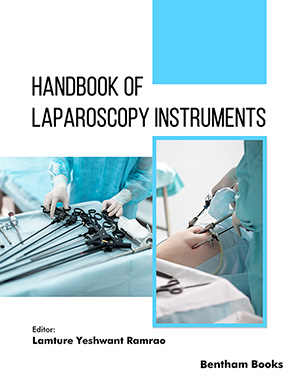Abstract
Background: This retrospective cohort study was designed to assess whether there is an association between newly diagnosed dementia and the risk of stroke. Methods: From Taiwan’s National Health Insurance Research Database of reimbursement claims, we identified 2811 patients with newly diagnosed dementia and 14,055 randomly selected, agematched patients without dementia. A Cox proportional hazards model was constructed to calculate the development of stroke, including ischemic stroke, and intracerebral, or subarachnoid hemorrhage. Results: During the 3-year follow-up period, 339 patients with dementia (12.06%) and 691 patients without dementia (4.92%) developed stroke. The adjusted HRs of developing stroke among newly diagnosed dementia patients were 2.33-times (range, 2.05–2.66), and the incidence of hemorrhagic stroke was higher than that of other stroke types. Patients who had Alzheimer’s disease were at the highest risk of hemorrhagic stroke. Conclusion: Individuals with dementia, especially Alzheimer’s disease, are at greater risk of developing stroke, especially in intracerebral and subarachnoid hemorrhage than patients without dementia. Early mental screening programs and health education should be initiated for dementia patients.
Keywords: Dementia, epidemiology, neurodegeneration, stroke.
Current Alzheimer Research
Title:Newly Diagnosed Dementia and Increased Risk of Hemorrhagic Stroke: A Nationwide Population-based Study
Volume: 11 Issue: 3
Author(s): Hao-Kuang Wang, Kuen-Jer Tsai, Chih-Yuan Huang, Liang-Chao Wang, Kang Lu, Han-Jung Chen, Chi-Wei Lin, Yi-Jer Lee, Pei-Hsuan Fang, Li-Ching Chang and Ying-Chun Li
Affiliation:
Keywords: Dementia, epidemiology, neurodegeneration, stroke.
Abstract: Background: This retrospective cohort study was designed to assess whether there is an association between newly diagnosed dementia and the risk of stroke. Methods: From Taiwan’s National Health Insurance Research Database of reimbursement claims, we identified 2811 patients with newly diagnosed dementia and 14,055 randomly selected, agematched patients without dementia. A Cox proportional hazards model was constructed to calculate the development of stroke, including ischemic stroke, and intracerebral, or subarachnoid hemorrhage. Results: During the 3-year follow-up period, 339 patients with dementia (12.06%) and 691 patients without dementia (4.92%) developed stroke. The adjusted HRs of developing stroke among newly diagnosed dementia patients were 2.33-times (range, 2.05–2.66), and the incidence of hemorrhagic stroke was higher than that of other stroke types. Patients who had Alzheimer’s disease were at the highest risk of hemorrhagic stroke. Conclusion: Individuals with dementia, especially Alzheimer’s disease, are at greater risk of developing stroke, especially in intracerebral and subarachnoid hemorrhage than patients without dementia. Early mental screening programs and health education should be initiated for dementia patients.
Export Options
About this article
Cite this article as:
Wang Hao-Kuang, Tsai Kuen-Jer, Huang Chih-Yuan, Wang Liang-Chao, Lu Kang, Chen Han-Jung, Lin Chi-Wei, Lee Yi-Jer, Fang Pei-Hsuan, Chang Li-Ching and Li Ying-Chun, Newly Diagnosed Dementia and Increased Risk of Hemorrhagic Stroke: A Nationwide Population-based Study, Current Alzheimer Research 2014; 11 (3) . https://dx.doi.org/10.2174/1567205011666140131120351
| DOI https://dx.doi.org/10.2174/1567205011666140131120351 |
Print ISSN 1567-2050 |
| Publisher Name Bentham Science Publisher |
Online ISSN 1875-5828 |
Call for Papers in Thematic Issues
New Advances in the Prevention, Diagnosis, Treatment, and Rehabilitation of Alzheimer's Disease
Aims and Scope: Introduction: Alzheimer's disease (AD) poses a significant global health challenge, with an increasing prevalence that demands concerted efforts to advance our understanding and strategies for prevention, diagnosis, treatment, and rehabilitation. This thematic issue aims to bring together cutting-edge research and innovative approaches from multidisciplinary perspectives to address ...read more
Current updates on the Role of Neuroinflammation in Neurodegenerative Disorders
Neuroinflammation is an invariable hallmark of chronic and acute neurodegenerative disorders and has long been considered a potential drug target for Alzheimer?s disease (AD) and dementia. Significant evidence of inflammatory processes as a feature of AD is provided by the presence of inflammatory markers in plasma, CSF and postmortem brain ...read more
Deep Learning for Advancing Alzheimer's Disease Research
Alzheimer's disease (AD) poses a significant global health challenge, with an increasing number of individuals affected yearly. Deep learning, a subfield of artificial intelligence, has shown immense potential in various domains, including healthcare. This thematic issue of Current Alzheimer Research explores the application of deep learning techniques in advancing our ...read more
Diagnostic and therapeutic biomarkers of dementia
Dementia affects 18 million people worldwide. Dementia is a syndrome of symptoms caused by brain disease, usually chronic or progressive, clinically characterized by multiple impairments of higher cortical functions such as memory, thinking, orientation, and learning. In addition, in the course of dementia, cognitive deficits are observed, which often hinder ...read more
 41
41
- Author Guidelines
- Graphical Abstracts
- Fabricating and Stating False Information
- Research Misconduct
- Post Publication Discussions and Corrections
- Publishing Ethics and Rectitude
- Increase Visibility of Your Article
- Archiving Policies
- Peer Review Workflow
- Order Your Article Before Print
- Promote Your Article
- Manuscript Transfer Facility
- Editorial Policies
- Allegations from Whistleblowers
- Announcements
Related Articles
-
Synthetic Lipoproteins as Carriers for Drug Delivery
Current Medicinal Chemistry Neuroprotective Strategies for Parkinsons Disease
Current Neuropharmacology Dimerization of C-terminal Truncations of α-synuclein and its Effect on the Aggregation Propensity: A Potential of Mean Force Study
Current Chemical Biology Dietary Lipids and Alzheimer’s Disease
Current Alzheimer Research Development of Vesicular Acetylcholine Transporter Ligands: Molecular Probes for Alzheimers Disease
Current Bioactive Compounds Urinary Albumin to Creatinine Ratio as Potential Biomarker for Cerebral Microvascular Disease
Current Neurovascular Research Visualization of Brain Amyloid and Microglial Activation in Mouse Models of Alzheimers Disease
Current Alzheimer Research Treatment Strategies of Age-Related Memory Dysfunction by Modulation of Neuronal Plasticity
Mini-Reviews in Medicinal Chemistry Current Progresses on Nanodelivery Systems for the Treatment of Neuropsychiatric Diseases: Alzheimer’s and Schizophrenia
Current Pharmaceutical Design Inflammation-Induced Thrombosis: Mechanisms, Disease Associations and Management
Current Pharmaceutical Design The Effects of Gender and CYP46 and Apo E Polymorphism on 24S-Hydroxycholesterol Levels in Alzheimers Patients Treated with Statins
Current Alzheimer Research Drugs Used to Treat Parkinsons Disease, Present Status and Future Directions
CNS & Neurological Disorders - Drug Targets Understanding Healthy Protective Mechanisms Against Old Age
Current Aging Science Significance of Prion and Prion-Like Proteins in Cancer Development, Progression and Multi-Drug Resistance
Current Cancer Drug Targets Coumarin Compounds in Medicinal Chemistry: Some Important Examples from the Last Years
Current Topics in Medicinal Chemistry Amyloid-β in the Cerebrospinal Fluid of APP Transgenic Mice Does not Show Prion-like Properties
Current Alzheimer Research Patent Selections
Recent Patents on CNS Drug Discovery (Discontinued) Astrocytic α7 Nicotinic Receptor Activation Inhibits Amyloid-β Aggregation by Upregulating Endogenous αB-crystallin through the PI3K/Akt Signaling Pathway
Current Alzheimer Research MicroRNA Landscape in Alzheimer’s Disease
CNS & Neurological Disorders - Drug Targets WITHDRAWN: MicroRNA-125b can Target p38MAPK to Resolve Intermittent Hypoxia- Induced Dementia in Murine Models
Current Neurovascular Research


























